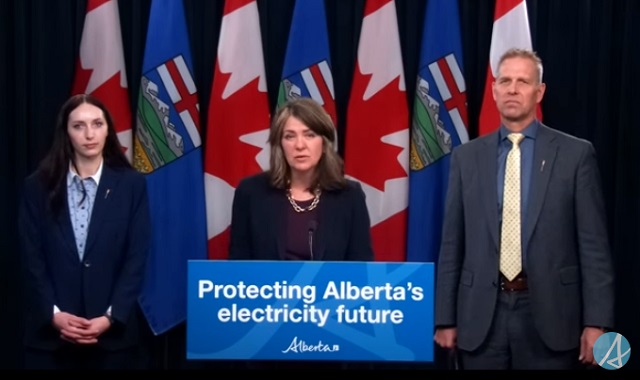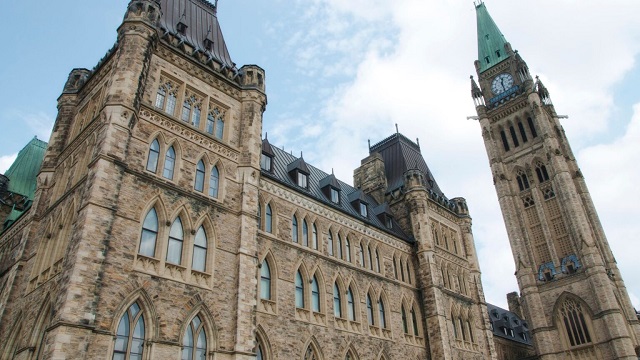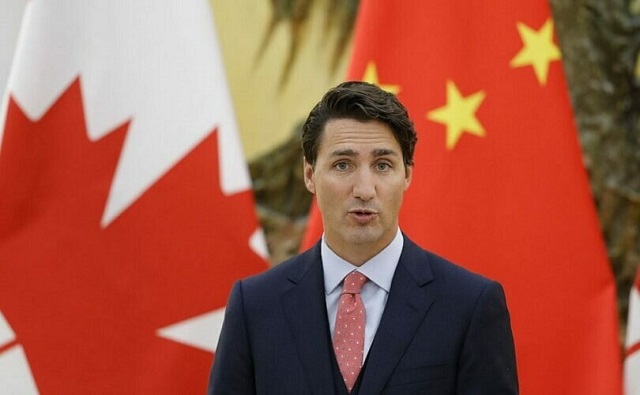Alberta
World’s largest civilian transport aircraft lifts Red Deer Company to India to battle nightmare well blowout

Piston Well Services Inc. has been hired to take on a fire that’s been burning for months.
Report from Northeast Today
The world’s largest Civilian transport aircraft ANTONOV (AN124) which has been commissioned for snubbing operation in Baghjan-well number 5 landed at Kolkata airport on Wednesday night from where it will make a 14- day long road journey to reach Baghjan in Assam’s Tinsukia district.
Reportedly, as both the Guwahati and Dibrugarh airport runways are not able to handle the massive Ukrainian ANTONOV (AN124) aircraft, it had to be landed in Kolkata.
As per reports, the 59,000 kgs equipment boarded the An124 heavy-lift aircraft – the world’s largest cargo carrier from Russia. The aircraft is used all over the world for its long haul cargo dropping.
According to the OIL sources, the aircraft was commissioned by Piston Well Service Inc of Canada which was hired by Alert Disaster Control, Singapore. The Alert has been commissioned by OIL for killing the Baghjan-5 well, which was burning since May 27 of this year.
According to the spokesperson of Oil India Limited (OIL) Tridiv Hazarika, the snubbing operation is expected to commence by the beginning of next week and the fire is expected to be snubbed by the first week of November ending months of misery of the people of Baghja
Earlier, the general manager of the company Ross Whelan informed the same through a facebook post saying that a crew had arrived and was ready to board a heavy-lift aircraft from Canada’s Calgary.
“Our crew has arrived, and 59,000kg of our equipment boarded the An124 heavy-lift aircraft in Calgary today,” he said.
On May 27 this year, a blowout occurred in the Baghjan Oil Well, this was followed by an inferno on June 9, after the well suddenly became active while OIL was carrying out workover operations in the gas-producing well under Baghjan Oilfield. OIL lost three men including two firefighters and a young engineer.
Read the whole story including photos of the Antonov at this link

Tinsukia: An aerial view of the Baghjan oil field engulfed in fire, in Tisukia, Assam, Tuesday, June 9, 2020. The field has been leaking gas for the past two weeks. (PTI Photo) (PTI10-06-2020_000035B)
- Piston Well Services Rig 6 about to load
- Piston Well Services Rig 6 loading
- Piston Well Services Rig 6 loaded
From Ross Whelan, GM of Piston Well Services Inc. in Red Deer.
Piston Well Services Inc. of Alberta is proud to announce the award of a contract to conduct emergency snubbing services for Alert Disaster Control of Singapore on the Baghjan Well #5 blowout in Assam, India. The scope of work includes mobilizing a crew and snubbing unit with support equipment to facilitate killing, plugging and abandoning the well which blew out on May 27, 2020 and exploded in a remote wetland causing a major human and ecological disaster.
The well is currently capped, and uncontrolled flow is temporarily diverted as wellhead integrity issues caused by the blowout and subsequent fire are preventing the use of traditional well shut-in and kill methods. A proposed snubbing procedure was confirmed with computer modeling and ordered by the well owner.
Piston’s team engaged to overcome a litany of logistical issues but it’s an honour to deploy our Canadian know-how to bring an unfortunate event to a safe conclusion.
Piston is a snubbing, completions & workover company based in Red Deer, AB, established in 1999 by the industry’s pioneers and continues to serve the Western Canadian Basin with a fleet of proprietary high pressure snubbing units.
Here’s a time-lapse from Piston Well Services Inc. showing the process of loading Rig 6.
Alberta
Province to stop municipalities overcharging on utility bills

Making utility bills more affordableAlberta’s government is taking action to protect Alberta’s ratepayers by introducing legislation to lower and stabilize local access fees. Affordability is a top priority for Alberta’s government, with the cost of utilities being a large focus. By introducing legislation to help reduce the cost of utility bills, the government is continuing to follow through on its commitment to make life more affordable for Albertans. This is in addition to the new short-term measures to prevent spikes in electricity prices and will help ensure long-term affordability for Albertans’ basic household expenses.
Local access fees are functioning as a regressive municipal tax that consumers pay on their utility bills. It is unacceptable for municipalities to be raking in hundreds of millions in surplus revenue off the backs of Alberta’s ratepayers and cause their utility bills to be unpredictable costs by tying their fees to a variable rate. Calgarians paid $240 in local access fees on average in 2023, compared to the $75 on average in Edmonton, thanks to Calgary’s formula relying on a variable rate. This led to $186 million more in fees being collected by the City of Calgary than expected.
To protect Alberta’s ratepayers, the Government of Alberta is introducing the Utilities Affordability Statutes Amendment Act, 2024. If passed, this legislation would promote long-term affordability and predictability for utility bills by prohibiting the use of variable rates when calculating municipalities’ local access fees. Variable rates are highly volatile, which results in wildly fluctuating electricity bills. When municipalities use this rate to calculate their local access fees, it results in higher bills for Albertans and less certainty in families’ budgets. These proposed changes would standardize how municipal fees are calculated across the province, and align with most municipalities’ current formulas.
If passed, the Utilities Affordability Statutes Amendment Act, 2024 would prevent municipalities from attempting to take advantage of Alberta’s ratepayers in the future. It would amend sections of the Electric Utilities Act and Gas Utilities Act to ensure that the Alberta Utilities Commission has stronger regulatory oversight on how these municipal fees are calculated and applied, ensuring Alberta ratepayer’s best interests are protected.
If passed, this legislation would also amend sections of the Alberta Utilities Commission Act, the Electric Utilities Act, Government Organizations Act and the Regulated Rate Option Stability Act to replace the terms “Regulated Rate Option”, “RRO”, and “Regulated Rate Provider” with “Rate of Last Resort” and “Rate of Last Resort Provider” as applicable. Quick facts
Related information |
Alberta
Alberta moves to protect Edmonton park from Trudeau government’s ‘diversity’ plan

From LifeSiteNews
If Trudeau’s National Urban Park Initiative is implemented, Alberta could see its parks, including Edmonton’s River Valley, hijacked by the federal government in the name of ‘sustainability, conservation, equity, diversity, inclusion, and reconciliation.’
Edmonton is working to protect its River Valley from the Trudeau government’s “diversity” park plan.
On April 15, Alberta Legislature passed MLA Brandon Lunty’s private members’ Bill 204 to protect the Edmonton River Valley from Prime Minister Justin Trudeau’s National Urban Park Initiative which would give the federal government power over provincial parks to enforce a variety of quotas related to the “climate” and “diversity.”
“Albertans elected our United Conservative government with a majority mandate to, among other things, protect families and communities from federal overreach and intrusion. That’s exactly what this bill accomplishes,” Lunty said in a press release.
Bill 204, titled the Municipal Government (National Urban Parks) Amendment Act, is a response to the National Urban Park Initiative which would give the Trudeau government jurisdiction over Alberta’s provincial parks.
The Trudeau government’s plan promises to “provide long-lasting benefits to the urban area” by using “sustainability, conservation, equity, diversity, inclusion, and reconciliation.”
If the program is approved, the Edmonton River Valley could be “fully owned by the Federal Government,” which will use the space to advance their values, including addressing the impacts of “climate change” and creating spaces where “diversity is welcomed.”
The plan also promises that equity will be “intentionally advanced” while “respecting indigenous rights” through “reconciliation.”
However, many Edmonton citizens were concerned with the Urban Park Initiative and met with their MLAs to discuss the issue.
Edmonton citizen Sheila Phimester worked with MLA Jackie Lovely to create a petition to prevent the River Valley from becoming federally owned. The petition has received over 5,000 signatures.
“Instead of Edmontonians making decisions about what happens in the park, Ottawa would be making the decisions,” the petition warned.
“Oh, and because it’s the federal government, their ‘priorities’ for these parks are ‘healthier communities’, ‘climate resilience’, ‘reconciliation’, ‘equity’, ‘diversity’, and ‘inclusion,’” it continued.
Already, Trudeau has attempted to assert power over Alberta’s industry by placing “climate” restrictions on their oil and gas production in an attempt to force net-zero regulations on all Canadian provinces, including on electricity generation, by as early as 2035.
However, Alberta Premier Danielle Smith has repeatedly vowed to protect the province from Trudeau’s radical “net zero” push.
In December, Alberta Premier Danielle Smith blasted Trudeau’s Environment Minister Steven Guilbeault’s plan to slash oil and gas emissions by 35 percent to 38 percent below 2019 levels as “unrealistic” and “unconstitutional.”
Trudeau’s current environmental goals are in lockstep with the United Nations’ “2030 Agenda for Sustainable Development” and include phasing out coal-fired power plants, reducing fertilizer usage, and curbing natural gas use over the coming decades.
The reduction and eventual elimination of the use of so-called “fossil fuels” and a transition to unreliable “green” energy has also been pushed by the World Economic Forum (WEF) – the globalist group behind the socialist “Great Reset” agenda – an organization in which Trudeau and some of his cabinet are involved.
In November, after announcing she had “enough” of Trudeau’s extreme environmental rules, Smith said her province had no choice but to assert control over its electricity grid to combat federal overreach by enacting its Sovereignty Act. The Sovereignty Act serves to shield Albertans from future power blackouts due to federal government overreach.
Unlike most provinces in Canada, Alberta’s electricity industry is nearly fully deregulated. However, the government still has the ability to take control of it at a moment’s notice.
-

 COVID-192 days ago
COVID-192 days agoJapanese study finds ‘significant increases’ in cancer deaths after third mRNA COVID doses
-

 Brownstone Institute2 days ago
Brownstone Institute2 days agoPfizer Lied to Us Again
-

 Brownstone Institute2 days ago
Brownstone Institute2 days agoDid Lockdowns Set a Global Revolt in Motion?
-

 Brownstone Institute2 days ago
Brownstone Institute2 days agoIs the Overton Window Real, Imagined, or Constructed?
-

 Frontier Centre for Public Policy1 day ago
Frontier Centre for Public Policy1 day agoThe tale of two teachers
-

 Freedom Convoy14 hours ago
Freedom Convoy14 hours agoOttawa spent “excessive” $2.2 million fighting Emergencies Act challenge
-

 Alberta7 hours ago
Alberta7 hours agoProvince to stop municipalities overcharging on utility bills
-

 Alberta16 hours ago
Alberta16 hours agoAlberta moves to protect Edmonton park from Trudeau government’s ‘diversity’ plan











